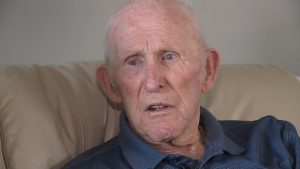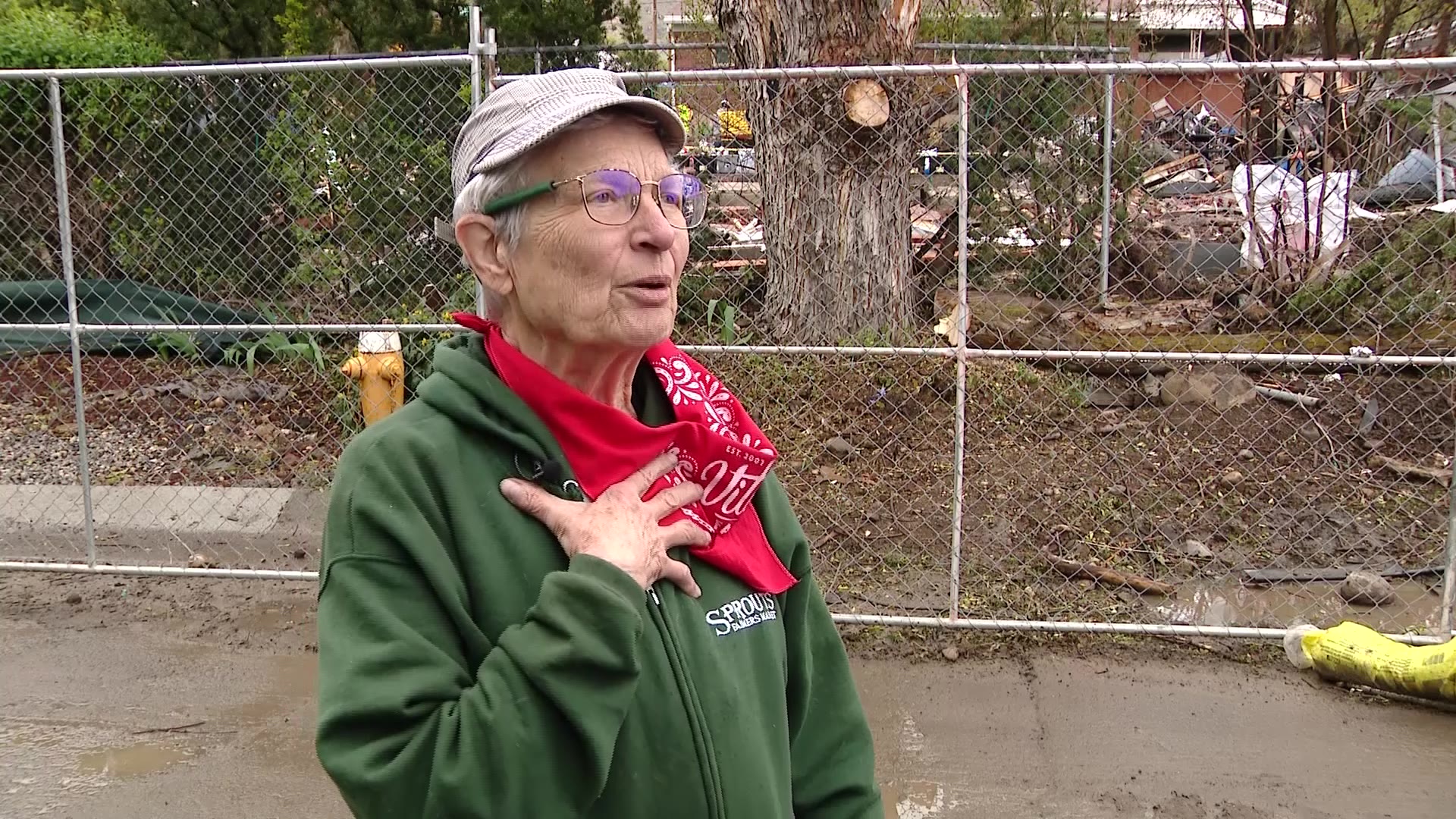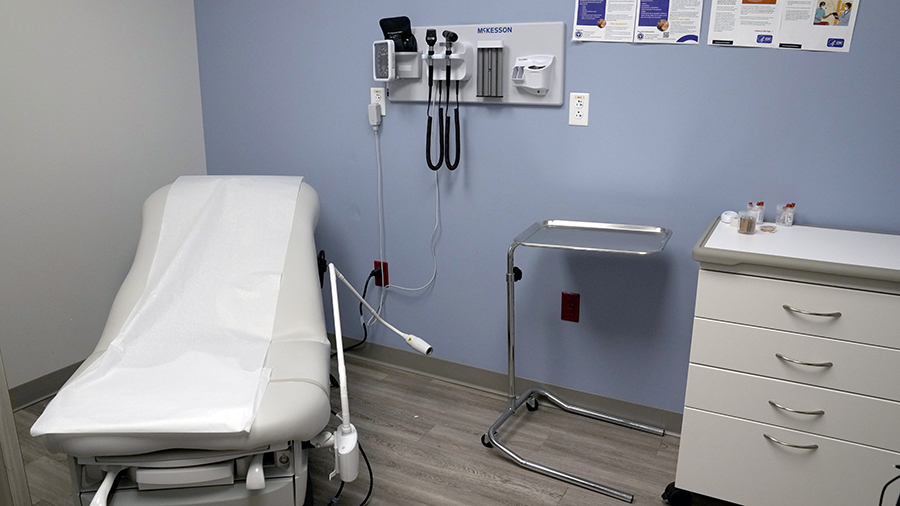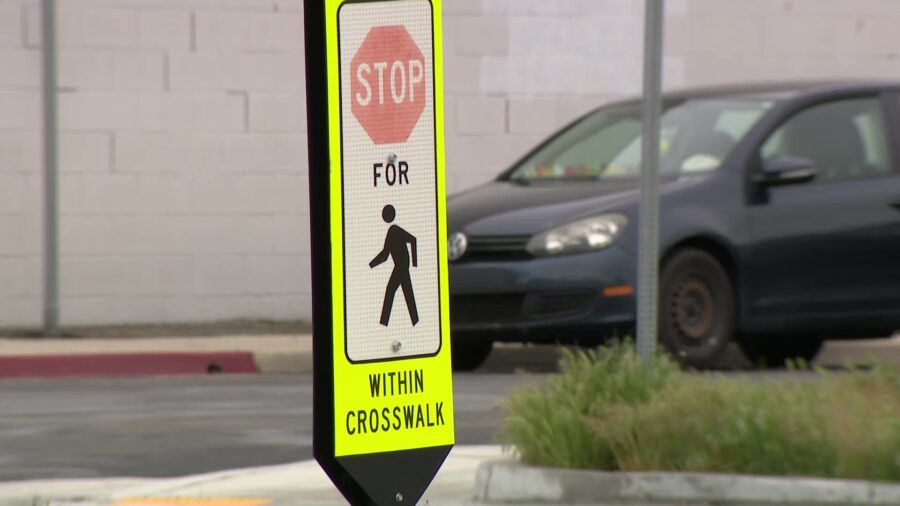Utah County Man Recalls Arriving in Normandy on D-Day
Jun 6, 2019, 10:28 PM | Updated: 10:36 pm
SALEM, Utah — Sitting on his couch in his Salem home, Marvell Broderick makes it sound so simple.
“We got into the ships and went over and drove off into Normandy,” he said, about as matter-of-fact as possible.
That’s probably because it’s difficult to explain what he really saw there.
“It was quite a sight. Something I wouldn’t want somebody else to go through,” he said, only this time with the kind of look in his light blue eyes that shows he’s seeing something others can’t.
Broderick was a U.S. Army soldier who landed on Utah Beach in Normandy, France, during D-Day +2 among the second wave of soldiers.

World War II veteran Marvell Broderick, 94, who was on Utah and Omaha beaches with the 90th Infantry Division during the Normandy invasion, talks about his time in Germany with his wife, Laura, at their home in Salem, Utah County, on Thursday, June 6, 2019, the 75th anniversary of D-Day.
“The Germans were shooting at us, of course, and there were guys dropping,” Broderick said. “There were shells falling all over and planes. I never saw so many planes. The sky was full of planes.”
The area was also full of men who were no longer scared.
“At one time we had to go into enemy territory and pick up dead bodies,” he said.
Broderick was a truck driver delivering ammunition during the war.
It was a job he enjoyed, even though one time an officer asked him if he wanted to do something different.
“I was asked by the motor officer if I would like to be his driver and I told him, ‘No, I would just drive truck.’ And he and his driver were both killed by a German bazooka later on,” said Broderick.
He remembers another time being in a convoy with Gen. George Patton when they had to stop for some reason.
“I had stopped out a little too far out in the road and he wanted to get by and he chewed me out,” said Broderick with a chuckle.
It’s one of the few parts of the war he can laugh about.

World War II veteran Marvell Broderick, 94, who was on Utah and Omaha beaches with the 90th Infantry Division during the Normandy invasion, talks about his time in Germany during an interview at his home in Salem, Utah County, on Thursday, June 6, 2019, the 75th anniversary of D-Day.
He also recalls how the French couldn’t thank Americans enough.
“We would go through the cities and people were out wanting to give you hugs and everything,” he said.
It made him proud to be fighting for something; doing a job that needed to be done in a war that needed to be won.
After Germany was defeated, there was talk of sending his division to Japan.
However, after the atomic bombs were dropped, essentially ending the war, Broderick was sent back home to Utah.
He made a career out of working in garages, as a milkman, and eventually retired as a postal carrier.
Broderick is now 94 years old and says he doesn’t think much about the 75th anniversary of D-Day, but he hopes the men who died there are never forgotten.
“Mainly the people who gave their lives to defeat the enemy and preserve our freedom,” said Broderick. “People, I don’t think, realize and appreciate the freedoms we have in this country.”












